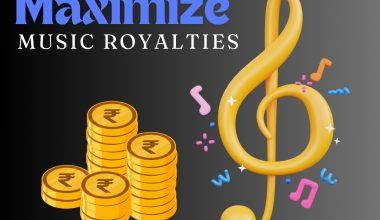In the music industry, ensuring that artists, songwriters, and composers receive fair compensation for their work is crucial. This is where Performance Rights Organizations (PROs) come into play. These organizations play a vital role in managing and licensing the public performance rights of music. In this blog, we will delve into what Performance Rights Organizations do, how they operate, and why they are essential for anyone involved in music creation and performance.
What Are Performance Rights Organizations (PROs)?
Performance Rights Organizations (PROs) are entities that manage the rights of songwriters, composers, and music publishers by licensing the public performance of their music. This includes music played on radio, television, live venues, and digital streaming services. PROs ensure that music creators are compensated whenever their work is performed publicly.
PROs work by issuing licenses to various entities such as radio stations, TV networks, concert venues, restaurants, and digital platforms like Spotify and YouTube. These licenses grant the entities legal permission to play the registered music in public, ensuring that the creators receive royalties.
How Do Performance Rights Organizations (PROs) Work?
PROs operate by issuing licenses to businesses and organizations that want to use music in public settings. These licenses provide legal permission for the public performance of music and generate royalties for the rights holders. Here’s a step-by-step look at how PROs function:
- Membership and Registration: Artists, songwriters, and composers join a PRO and register their works with the organization. This registration is crucial as it allows the PRO to keep track of the music being used and ensure that the creators receive their due royalties.
- Licensing: PROs issue licenses to venues, broadcasters, and digital platforms to legally use the registered music. These licenses can be blanket licenses covering a vast range of music or specific licenses for particular songs or compositions.
- Tracking and Monitoring: PROs monitor the use of music across various platforms and collect performance data. This monitoring involves tracking radio plays, TV broadcasts, live performances, and digital streams.
- Royalty Distribution: Based on the performance data, PROs distribute royalties to the rights holders. The amount each rights holder receives depends on the frequency and type of performances of their registered works.
Major Performance Rights Organizations (PROs)
Several PROs operate globally, each serving different regions and rights holders. Some of the major Performance Rights Organizations (PROs) include:
- ASCAP (American Society of Composers, Authors, and Publishers): One of the oldest and largest PROs in the United States.
- BMI (Broadcast Music, Inc.): Another major US-based PRO that represents a vast catalog of music.
- SESAC (Society of European Stage Authors and Composers): A US-based PRO known for its selective membership.
- PRS for Music (Performing Right Society): The primary PRO in the United Kingdom, representing songwriters and publishers.
- SACEM (Société des Auteurs, Compositeurs et Éditeurs de Musique): France’s leading PRO.
- GEMA (Gesellschaft für musikalische Aufführungs- und mechanische Vervielfältigungsrechte): Germany’s main PRO.
Why Do Performance Rights Organizations (PROs) Matter?
Fair Compensation
One of the primary reasons Performance Rights Organizations (PROs) matter is that they ensure fair compensation for music creators. Without PROs, it would be challenging for individual artists and songwriters to track and collect royalties for the use of their music. PROs handle the complex process of licensing, tracking, and royalty distribution, making sure that creators receive payments for their work.
Legal Protection
PROs provide legal protection to artists by licensing the use of their music and taking legal action against unauthorized use. This helps maintain the integrity of the creators’ work and ensures they are compensated for their contributions. PROs also help artists navigate the legal complexities of copyright laws and intellectual property rights.
Broad Reach
By working with PROs, artists can reach a wider audience. PROs license music to various platforms, including radio stations, TV networks, and streaming services, allowing creators’ work to be heard globally. This broad reach helps artists gain exposure and build a larger fan base.
Simplified Licensing Process
For businesses and organizations, dealing with a PRO simplifies the process of legally using music. Instead of negotiating with individual rights holders, they can obtain a blanket license from a PRO that covers a vast catalog of music. This streamlined process makes it easier for businesses to comply with copyright laws and avoid legal issues.
The Role of PROs in Digital Music Distribution
In the digital age, the role of Performance Rights Organizations (PROs) has expanded to include online and streaming services. With the rise of platforms like Spotify, Apple Music, and YouTube, PROs have adapted to ensure that artists are compensated for digital performances of their work.
Licensing Digital Platforms
PROs issue licenses to digital music services, enabling them to legally stream music to their users. These licenses are essential for the platforms to operate and provide access to a vast library of music. By licensing digital platforms, PROs help ensure that artists receive royalties for streams and downloads of their music.
Tracking Digital Plays
Tracking plays on digital platforms is more complex than traditional media. PROs use sophisticated technology to monitor and collect data on the usage of music online. This data is then used to calculate and distribute royalties to the rights holders. PROs work with digital services to track streams, downloads, and other forms of digital music consumption.
Challenges and Opportunities
While digital distribution offers new opportunities for revenue, it also presents challenges. The sheer volume of data and the global nature of digital platforms make tracking and licensing more complicated. However, PROs continue to evolve to meet these challenges and ensure fair compensation for artists. Advances in technology, such as blockchain, are also being explored to enhance the efficiency and transparency of the royalty distribution process.
How to Choose the Right Performance Rights Organization (PRO)
For artists and songwriters, choosing the right Performance Rights Organization (PRO) is a critical decision. Here are some factors to consider:
Geographic Coverage
Consider where your music is most likely to be played. Some PROs have a stronger presence in certain regions. For example, if your music is primarily played in the US, ASCAP or BMI might be a better choice than PRS for Music. Conversely, if your music has a significant audience in Europe, you might consider joining SACEM or GEMA.
Membership Fees and Requirements
Different PROs have varying membership fees and requirements. Some might charge an upfront fee, while others may have different criteria for joining. It’s essential to understand these before making a decision. Compare the costs and benefits of each PRO to find the one that best fits your needs.
Royalty Distribution
Look into how each PRO distributes royalties. Some PROs may have more frequent payout schedules or different methods of calculating royalties. Understanding these details can help you choose a PRO that aligns with your financial needs. Consider how transparent and efficient the PRO’s royalty distribution process is.
Services and Support
Consider the additional services and support offered by the PRO. Some organizations provide legal support, networking opportunities, and other resources that can be beneficial for your career. Look for PROs that offer comprehensive support and resources to help you grow as an artist.
The Future of Performance Rights Organizations (PROs)
As the music industry continues to evolve, Performance Rights Organizations (PROs) will need to adapt to new technologies and changing consumption patterns. Here are some trends and challenges that PROs are likely to face in the future:
Blockchain Technology
Blockchain technology has the potential to revolutionize the way PROs track and distribute royalties. By providing a transparent and immutable ledger, blockchain can ensure accurate tracking of music usage and faster, more efficient royalty payments. This technology could also reduce administrative costs and improve transparency in royalty distribution.
Globalization
With music being consumed globally, PROs will need to enhance their international reach and collaboration. This includes working with foreign PROs and adapting to different legal and regulatory environments. Enhancing global partnerships can help PROs better serve artists who have audiences in multiple countries.
Artificial Intelligence
AI can play a significant role in monitoring and analyzing music usage data. PROs can leverage AI to improve accuracy in tracking performances and streamline the royalty distribution process. AI can also help PROs identify new opportunities for licensing and revenue generation.
Adapting to New Business Models
The music industry is constantly changing, with new business models emerging. PROs will need to adapt to these changes to continue providing value to artists and rights holders. This includes understanding and licensing new forms of music consumption, such as virtual concerts and immersive experiences.
Enhancing Artist Support
PROs will continue to enhance the support they provide to artists, offering more resources for career development, legal advice, and networking opportunities. By providing comprehensive support, PROs can help artists navigate the complexities of the music industry and achieve greater success.
Conclusion
Performance Rights Organizations (PROs) are fundamental to the music industry, providing essential services that ensure artists and songwriters receive fair compensation for their work. By managing the licensing, tracking, and royalty distribution processes, PROs support the livelihoods of music creators and contribute to the industry’s overall health and sustainability.
For anyone involved in music creation and performance, understanding the role and importance of PROs is crucial. Whether you’re an artist looking to join a PRO or a business seeking to license music legally, PROs provide the framework and support necessary to navigate the complex world of music rights.
For further reading, explore these related articles:
- How YouTube Royalties Work?
- How to successfully upload mp3 to YouTube?
- YouTube Marketing Strategy for Musicians?
For additional resources on music marketing and distribution, visit Deliver My Tune






